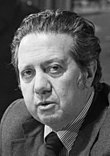
Back Eleccions legislatives portugueses de 1983 Catalan Parlamentswahl in Portugal 1983 German Elecciones parlamentarias de Portugal de 1983 Spanish Élections législatives portugaises de 1983 French Elezioni legislative in Portogallo del 1983 Italian 1983年ポルトガル議会選挙 Japanese Eleições legislativas portuguesas de 1983 Portuguese
| ||||||||||||||||||||||||||||||||||||||||||||||||||||||||||||||||||||||||||||||||
250 seats to the Portuguese Assembly 125 seats needed for a majority | ||||||||||||||||||||||||||||||||||||||||||||||||||||||||||||||||||||||||||||||||
|---|---|---|---|---|---|---|---|---|---|---|---|---|---|---|---|---|---|---|---|---|---|---|---|---|---|---|---|---|---|---|---|---|---|---|---|---|---|---|---|---|---|---|---|---|---|---|---|---|---|---|---|---|---|---|---|---|---|---|---|---|---|---|---|---|---|---|---|---|---|---|---|---|---|---|---|---|---|---|---|---|
| Registered | 7,337,064 | |||||||||||||||||||||||||||||||||||||||||||||||||||||||||||||||||||||||||||||||
| Turnout | 5,707,695 (77.8%) | |||||||||||||||||||||||||||||||||||||||||||||||||||||||||||||||||||||||||||||||
| ||||||||||||||||||||||||||||||||||||||||||||||||||||||||||||||||||||||||||||||||
| ||||||||||||||||||||||||||||||||||||||||||||||||||||||||||||||||||||||||||||||||
The 1983 Portuguese legislative election took place on 25 April. The election renewed all 250 members of the Assembly of the Republic.
The last election, in October 1980 had been won by a right-wing coalition, the Democratic Alliance (AD) and Francisco Sá Carneiro had retained office as Prime Minister with an increased majority.
However, Sá Carneiro, along with other important members of the coalition, died in an aircrash only two months after the election, on 4 December 1980. Such happenings caused a massive political instability and Francisco Pinto Balsemão, a senior official of the Social Democratic Party, the largest party in the Alliance, became Prime Minister. However, Balsemão's governments were very unstable and after the 1982 local elections results, he resigned as Prime Minister. The Social Democratic Party proposed possible names for Prime Minister to President of Portugal António Ramalho Eanes, but the President refused them and decided to call a snap election for April 1983.
The election was won by the Socialist Party with 36 percent, and Mário Soares was nominated Prime Minister. However, the Socialists lacked a majority in the Assembly of the Republic and were forced to form a coalition with the Social Democrats, which achieved 27 percent, in what was called the "Central Bloc". Although this coalition allowed Soares to govern, several members of both parties were against it, and internal attacks led to the collapse of the coalition after less than two years. In the election that followed, the Communist-dominated United People Alliance lost 3 MPs and the Democratic and Social Center, after the dissolution of the Democratic Alliance, was now alone in the Parliament with 30 MPs, a loss of 16. The election marked the beginning of a process of bi-polarization of Portuguese politics.
This was the last legislative election to be won by the Socialist Party until 1995.
Cite error: There are <ref group=lower-alpha> tags or {{efn}} templates on this page, but the references will not show without a {{reflist|group=lower-alpha}} template or {{notelist}} template (see the help page).
© MMXXIII Rich X Search. We shall prevail. All rights reserved. Rich X Search





